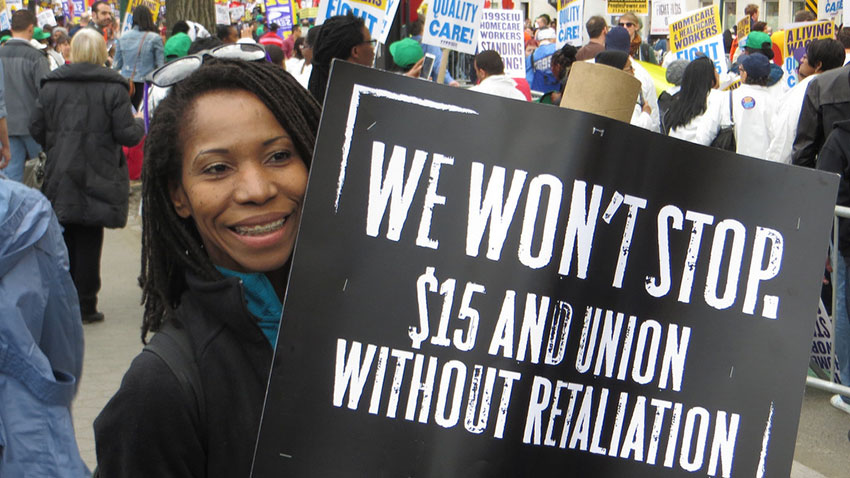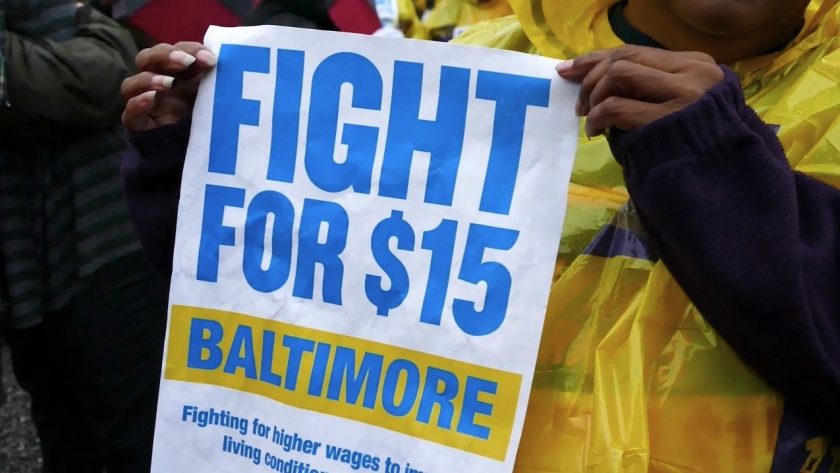Published by The Daily Signal
By Fred Lucas

As the union-backed “Fight for $15” movement has sought to enact mandatory minimum-wage increases in states and localities across the country, tax reform seems to have spurred wage growth using a different approach.
On the day President Donald Trump signed the sweeping tax-reform law, the New Jersey-based OceanFirst Financial Corp. issued a press release announcing “a commitment to increase the bank’s minimum hourly pay rate to $15.00 within 30 days of the enactment of the Tax Cuts and Jobs Act,” affecting 135 employees.
It’s one of 21 companies that have announced raising their base wage to $15 per hour because of tax reform, on a running list compiled by Americans for Tax Reform that currently shows more than 120 companies have announced raises or bonuses for employees.
Businesses large and small are taking the same action, citing tax reform as the reason, including some of OceanFirst’s much larger national competitors, such as Fifth Third Bancorp, with 13,500 employees, 3,000 of whom will benefit from the boost in base wage to $15, according to a company.
Others include BB&T with 27,000 employees; PNC Bank, with 47,500; U.S. Bancorp, with 60,000; and Wells Fargo, with more than 200,000. All raised their minimum wage to $15 per hour, and credited tax reform for the change.
It isn’t just banks. Connecticut-based insurance firm The Travelers announced that along with $1,000 bonuses for its 14,000 employees, “we have only a small number of U.S.-based employees making less than $15 an hour. We will increase their hourly wage to $15.”
While still early in the wake of enactment of the tax-reform law, the demonstrable results seem to be in stark contrast with the mandatory minimum-wage laws requiring a $15 wage.
After passing such a city ordinance, Seattle commissioned a study by the University of Washington, which found the cost to low-wage workers outweighed the benefits by a 3-1 ratio, and found that on average, low-wage workers would lose $125 per month in lost work hours, lost employment or lost job opportunities because of the law.
The National Bureau of Economic Research published the study.
“The problem with legislating a $15-per-hour wage is that if productivity is not up to $15 per hour, that person loses their job,” Americans for Tax Reform President Grover Norquist told The Daily Signal. “When you change the regulatory and tax policies, you expand the economy for workers, and productivity can expand for a greater reward.”
The results were predictable, said David Kreutzer, senior research fellow for labor markets and trade at The Heritage Foundation.
“What happens with tax cuts is that demand pulls wages up, and then you don’t have a problem with people losing jobs,” Kreutzer told The Daily Signal. “Without an increase in demand, people will lose their job, or typically don’t get hired. … The fight for $15 is unambitious and impossible. You can’t make people rich through mandates. We want an economy so strong that people can make $20 or $25 per hour because productivity is so strong.”
At the start of the new year, 18 states instituted a higher minimum wage, according to the National Conference of State Legislatures.
See the full story here.
January 9, 2018
Link: http://dailysignal.com/2018/01/09/tax-reform-keeping-promise-fight-15-couldnt/
Want more BFT? Leave us a voicemail on our page or follow us on Twitter @BFT_Podcast and Facebook @BluntForceTruthPodcast. We want to hear from you! There’s no better place to get the #BluntForceTruth.







